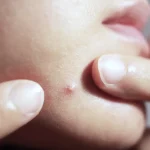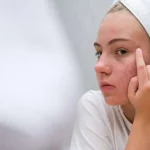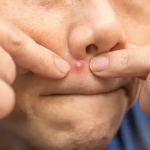Everyone is thinking about How do I reduce a hair loss problem and increase hair growth? Hair loss is a common issue that affects millions of people worldwide. It can be caused by various factors, including genetics, hormonal imbalances, stress, and certain illnesses. Understanding the science behind hair loss is the first step toward finding a solution. Hair grows from follicles, and if these follicles become damaged or dormant, hair loss can occur.
Preventing Hair Loss
Here are the key points for preventing hair loss in bullet format:
- Maintain a healthy, balanced diet rich in essential nutrients, especially iron.
- Manage stress through activities such as yoga, meditation, or regular exercise.
- Practice proper hair and scalp care. This includes using gentle, moisturizing shampoos and conditioners, and avoiding harsh chemical treatments.
- Avoid heat styling tools as much as possible. If you must use them, always apply a heat protectant to your hair beforehand.
- Avoid hairstyles that pull tightly on your hair, such as ponytails or braids, as they can cause tension and damage to your hair follicles.
- Regularly trim your hair to prevent split ends and breakage.
- Stay hydrated. Water helps to keep your hair hydrated from the inside out.
- Avoid smoking and limit alcohol consumption, as both can lead to dry and brittle hair, contributing to hair loss.
- Protect your hair from sun damage by wearing a hat or using a hair product with UV protection when you’re out in the sun for extended periods.
Check: Best Shampoo for oily Scalp

Promoting Hair Growth by reducing a hair loss problem
Promoting hair growth involves practices that stimulate the hair follicles and improve scalp health. Regular scalp massages can increase blood flow to the scalp, promoting hair growth.
Biotin, a B-vitamin, is essential for hair growth. Including biotin-rich foods in your diet or taking biotin supplements can help improve hair health. Regular trims can also promote hair growth by removing split ends and reducing hair breakage.
6 Natural Remedies for Hair Loss and Growth with using guide
Several natural hair care remedies can help reduce hair loss and promote hair growth. Essential oils, such as rosemary and peppermint oil, can stimulate hair growth when massaged into the scalp.
Aloe vera has been used for centuries for its hair growth-promoting properties. Applying aloe vera gel to the scalp can reduce inflammation and improve scalp health.
| Natural Remedy | Description | How to Use |
|---|---|---|
| Essential Oils | Essential oils like rosemary and peppermint can stimulate hair growth. | Mix a few drops with a carrier oil (like coconut or jojoba oil) and massage into the scalp. |
| Aloe Vera | Aloe vera can reduce inflammation and improve scalp health, promoting hair growth. | Apply aloe vera gel directly to the scalp and leave it on for a few hours before washing it off. |
| Onion Juice | Onion juice has sulfur which helps in the production of collagen tissues necessary for hair growth. | Extract the juice of an onion, apply it to your scalp and leave in for 15-30 minutes, then rinse off. |
| Fenugreek Seeds | Fenugreek seeds have hormones that promote hair growth and help rebuild hair follicles. | Soak the seeds overnight, grind them into a paste, apply to your scalp, and rinse off after 40 minutes. |
| Egg Mask | Eggs are rich in protein, a key building block of hair. | Mix one egg with a tablespoon of olive oil, apply the mixture to your hair and scalp, and rinse off after 20 minutes. |
| Green Tea | Green tea is rich in antioxidants, which can help prevent hair loss and boost hair growth. | Brew two bags of green tea in one cup of water, let it cool, then apply it to your hair. Rinse off after an hour. |
Remember, natural remedies can vary in effectiveness from person to person. It’s always a good idea to test a small amount on your skin first to ensure you don’t have an allergic reaction.

Check: Best affordable Hair Dryer
5 Best Medical Treatments for Hair Loss
If natural remedies and lifestyle changes aren’t enough, medical treatments can help combat hair loss.
Medical treatments for hair loss have advanced significantly in recent years, providing many effective options for individuals struggling with this issue.
- Minoxidil: This is a topical treatment that can slow hair loss and stimulate hair growth by extending the growth phase of hair follicles. It’s typically applied to the scalp twice a day and may take several months to see results.
- Finasteride: This is an oral medication that can help combat hair loss by blocking the production of a hormone that causes hair loss. It’s usually prescribed for men experiencing male pattern baldness.
- Platelet-Rich Plasma Therapy (PRP): This is a more advanced treatment that involves injecting platelets into the scalp. These platelets, derived from your own blood, can stimulate hair growth by promoting cell growth and increasing blood supply to hair follicles.
- Hair Transplant Surgery: This is a more invasive option where hair follicles are transplanted from one part of the scalp to another. It’s typically considered when other treatments have not been effective.
- Laser Therapy: Low-level laser therapy can stimulate hair growth by improving cell function in the scalp. It’s a non-invasive treatment that can be done in a clinic or at home with a laser cap or comb.
It’s important to consult with a healthcare provider or a dermatologist to understand which treatment is most suitable for your specific condition. They can provide guidance based on the cause of your hair loss, your overall health, and your personal preferences.
Check: Orifmale Pimple products for oily skin
FAQs
Here are some faqs to better understnad the soltiuonf of your hair problems
1. Can hair still grow after hair loss?
Yes, hair can regrow after hair loss, depending on the cause. If hair loss is due to a temporary factor like stress or a nutritional deficiency, hair often regrows once the issue is addressed.
2. What stimulates hair growth?
Several factors stimulate hair growth, including a healthy diet, regular scalp massages, certain essential oils, and medical treatments like minoxidil.
3. How do I stop my hair from falling out and thinning?
Preventing hair loss involves maintaining a healthy diet, reducing stress, caring for your hair and scalp, and avoiding damaging hair treatments. If hair loss continues, it may be best to consult a healthcare provider.
4. Should I cut my hair if it’s falling out?
Cutting your hair won’t stop it from falling out, but it can make hair look thicker and healthier. Regular trims can also reduce split ends and hair breakage, promoting healthier hair growth.
Conclusion
Discover actionable steps to combat hair loss and promote healthy hair growth through diet, lifestyle adjustments, natural remedies, and medical treatments. This comprehensive guide addresses common concerns and FAQs, empowering you to take control of your hair health effectively.









